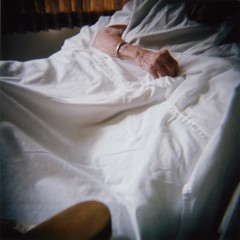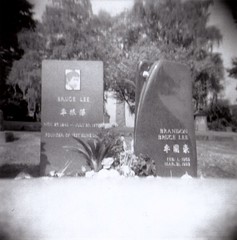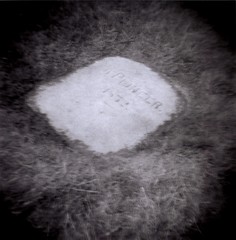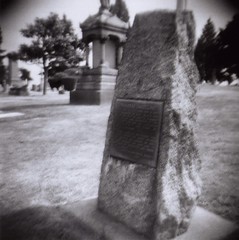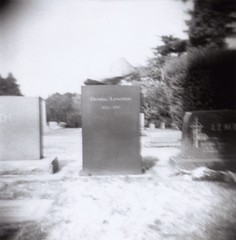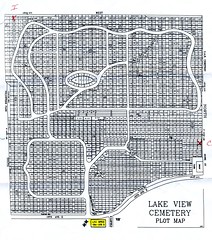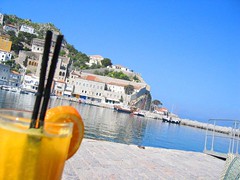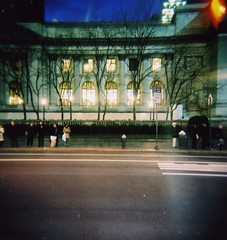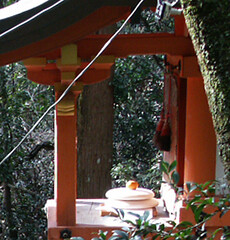
We went to Nara during the New Year, which everyone told us not to do. It would be too crowded, they predicted, with people attending to the last rites of the dying year, and it was.
Which is not to say we were sorry we went.
Nara is a great Shinto center, and we fell directly in with the crowds as they worked their way up the mountain, passing shrines and countless lanterns, pushing through people who were pressing against others. Near the top we broke away and wandered the trails, pausing to peer at the faithful in their administrations before the colorful Kagami Mochi -- rice cake and tangerine treats offered up to the gods in exchange for divine favor.
The farther we pressed into the forest the thinner the crowds became until at last we were walking alone -- and feared we might we lost.
As we debated whether we should double back the trees thinned and the trail descended to a public road. There was nothing to the left or to the right, but directly before us there was a small restaurant, with a sign scratched out in English, for lost English speaking tourists like ourselves.
We stepped out of the January chill and into the warmth. I sat on a cushion before the low tea table and ordered cold soba, which I suspect I had had before and knew to be delicious, or else I wouldn’t have ordered cold food on a cold day after a long walk.

The buckwheat noodles were served on a bamboo matt suspended over a plate. The boiled soba had been shocked in a cold water bath just prior to serving, and the design was meant to allow the last of the water to drain off. I dunked the noodles bite by bite into the fish-rich sauce, and knew to wait once the soba was gone for the waitress to come with the cooking water, which she poured into the remnants of the sauce and expected me to drink.
I can’t recall if I did, but I do remember that chocolate cake and the coffee came next. Incongruous, all of it, and absolutely perfect.




